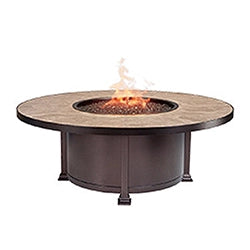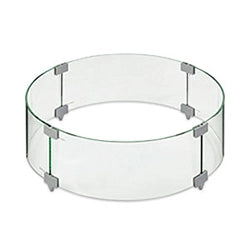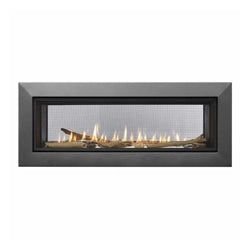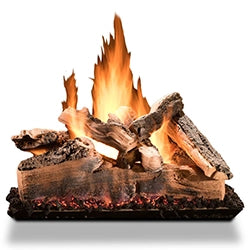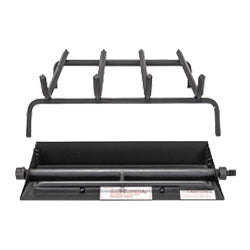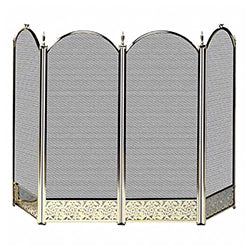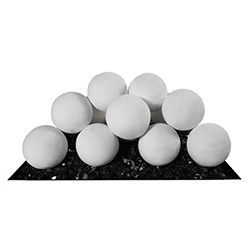Gas Grills
This is the most popular type of backyard grill. They can run either on bottled propane or natural gas from your utility provider. Most gas grills are designed for propane, but can be converted to natural gas fairly easily. Some people argue the merits of propane or methane, but there is very little difference between the two. If you have access to a natural gas line, utilizing it is certainly more convenient and less expensive than refilling propane tanks.
Best for: The chef who wants to quickly fire up the grill and cook a meal without having to worry about the preparation and cleanup of charcoal.
Disadvantages: Flavor and price. Although some gas grills have small smoker boxes, you will only get a hint of smoke flavor compared to a genuine charcoal grill or smoker; you really can’t smoke meats without a charcoal grill. While inexpensive gas grills do exist, the mechanisms involved ensure that they will always be more expensive than a comparable charcoal model.
Charcoal Grills
These grills use charcoal briquettes as the fuel and fire power for cooking. Cooking with charcoal is more time-consuming and expensive than a gas grill, but some people prefer the taste of cooking with charcoal, especially when it is made of natural wood.
Best for: The purist. If you long for that smoky, grilled flavor or you enjoy smoking meats, the only way to achieve both is with a charcoal grill. Charcoal burns at a higher temperature than gas, allowing a skilled grill master to easily sear meat. Cooking with charcoal also has a distinct romance that is clearly lacking with a modern gas grill.
Disadvantages: Time involved and the expense of charcoal. With a charcoal grill, you can’t just fire it up and throw something on it. Getting the grill ready to go takes at least 45 minutes of starting the coals and pre-heating the grill. You will also need to spend some time cleaning up your grill and disposing of the ashes when you’re done. Purchasing charcoal is also quite expensive when compared to gas.
Electric Grills
Electric grills are not hybrids, but are powered 100% by electricity and cook meat using heated grill plates – no fire required. There are indoor and outdoor varieties available.
Best for: City dwellers who are prohibited by fire regulations from using gas or charcoal grills. Check your local laws and building regulations to make sure that the grill you buy doesn’t violate any codes.
Disadvantages: Taste. Electric grills can produce results that look like their fire-powered cousins (grill marks are easy to come by), but they are not a replacement for the traditional grill. The smoky flavor is all but lost when using electricity.
Portable Grills
These grills can run on propane or charcoal, but have one thing in common – they are easily transported from one location to another.
Best for: The tailgater. If you love a good outdoor picnic or a perfectly cooked brat in the parking lot before the big game, this is the grill for you. You can buy portable grills of all different styles for picnics or for tailgating.
Disadvantages: Size. You can’t cook hamburgers for all 50 of your closest friends and fans at the same time. And if you’re cooking for a large crowd, you might just be on grill duty all day.







